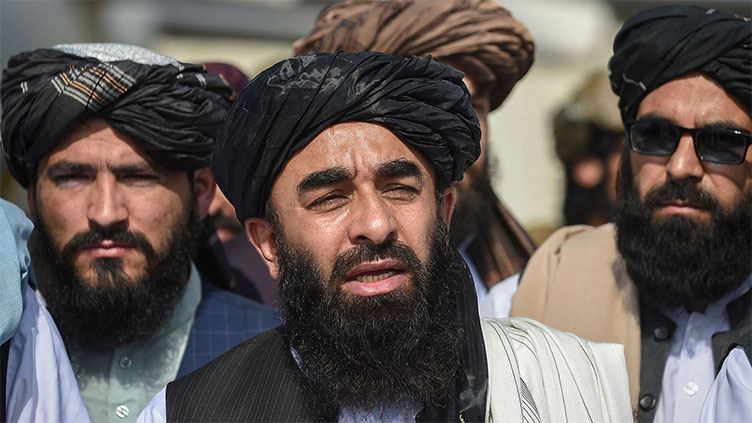Taliban vows in Geneva talks to protect aid workers: NGO

World
Taliban delegation has committed to ensuring protection for aid and health workers.
GENEVA (AFP) - A Taliban delegation has committed to ensuring protection for aid and health workers, including female staff, and enabling education in Afghanistan, the NGO hosting them for talks in Geneva said on Friday.
The delegation of around 10 Taliban members led by Health Minister Qalander Ebad has been meeting with officials, international organisations and NGOs in the Swiss city since Monday.
The Geneva Call foundation works to protect civilians during conflict and invited the delegation to Geneva to discuss ways to enhance unimpeded delivery of humanitarian assistance in crisis-torn Afghanistan.
The meetings concluded with a range of commitments, the foundation said.
The Islamic Emirate of Afghanistan (IEA) had signed a conference statement vowing to "facilitate principled humanitarian action in Afghanistan and to ensure the protection of humanitarian workers and aid", Geneva Call said in a statement.
The delegation had also committed to "promote the full respect and protection of health care facilities, transports and staff, including female workers", it said.
And the group had agreed to cooperate on landmine clearance, stockpile destruction and victim assistance, to promote the protection of environmental and cultural heritage.
The ministers also pledged "to protect all Afghans, including by providing, protecting and facilitating the continuation of their education", it added.
- Call for direct talks -
The full conference statement, published by Geneva Call, also included a call from the Taliban for direct talks with the international community, which does not officially recognise its rule.
The IEA delegations invited the international community "to engage with us in a transparent and accountable manner and in line with IEA policies and values, as well as to adopt a needs-based approach to humanitarian assistance," the statement said.
It also urged support for the humanitarian organisations to ensure aid reaches those in need in Afghanistan in a "non-political, impartial and independent manner, without distinction".
And it called on aid agencies to provide aid and advocate for keeping borders open, and "assist in our efforts to create safe corridors for humanitarian assistance, convoys, cargos and workers".
Geneva Call said the statement represented "a step towards enhanced protection of civilians in Afghanistan," although it did not provide details on commitments to concrete action or follow-up.
Since the Taliban took power in Kabul in August 2021, after international forces withdrew, Afghanistan has been pushed to the brink of humanitarian catastrophe, with more than half the country at risk of going hungry.
The UN has been advocating for months for an easing of the sanctions imposed on Kabul since August 2021 to avoid the collapse of the country.
So far no country has recognised the Taliban as the legitimate rulers of Afghanistan. Swiss authorities have stressed that the presence of the delegation in the wealthy Alpine nation in no way constitutes recognition.
The international community has been particularly shocked by the severe restrictions the Taliban has imposed on women and girls, especially on their ability to work and education.
The restrictions come despite the Taliban previously pledging a softer rule than their first stint in power in the 1990s.

